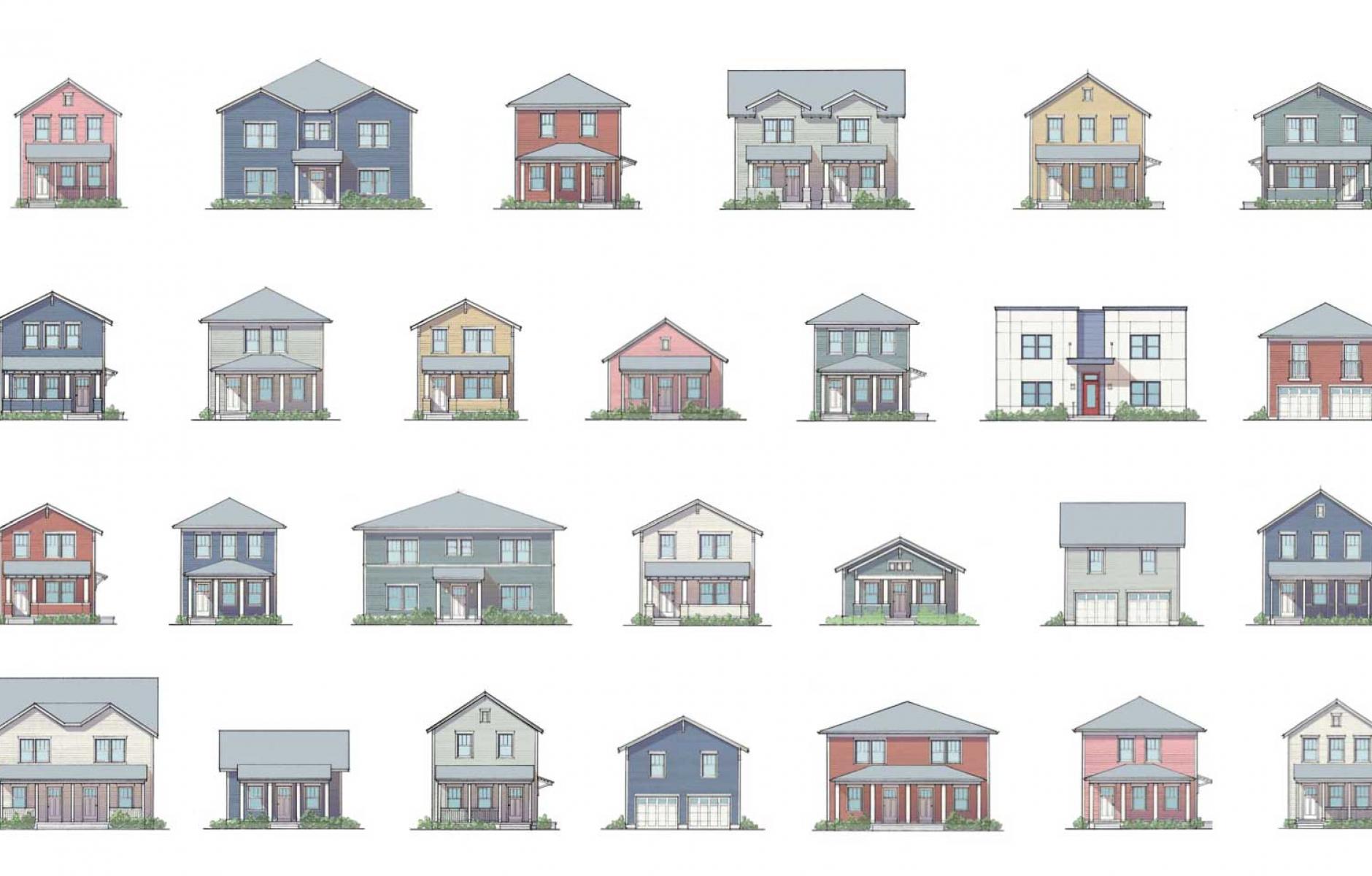
Legislation advances for zoning reform, pre-approved plans, pattern books and more
The ROAD to Housing Act 2025, which was passed unanimously by the Senate Banking, Housing, and Urban Affairs Committee on July 29, includes support for federally funded pattern books, pre-reviewed plans, zoning reform, streamlined infill housing, and transit-oriented development.
The bipartisan legislation led by Chairman Sen. Tim Scott (R-SC) and Sen. Elizabeth Warren (D-MA) has support from the National Association of Realtors (NAR), the National Association of Home Builders, the Mortgage Bankers Association, the US Conference of Mayors, the National Multifamily Housing Council, the National Apartment Association, National League of Cities, Habitat for Humanity, Up for Growth and other housing and real estate interest groups.
Meanwhile, a bill introduced by Sen. Lisa Blunt Rochester (D-DE) and Sen. Bernie Moreno (R-OH) was introduced in late July to establish a pilot HUD-administered grant program to fund the creation of pattern books and pre-approved plans with a focus on missing middle and infill construction, and provide set-asides for rural communities and prioritize high-opportunity areas working to reduce barriers to housing development. CNU was consulted on drafting the Blunt Rochester/Moreno Streamline Housing Construction legislation, which has the support of many national planning and housing groups.
SGA hailed the ROAD to Housing Act as “the first time in decades that Congress has stepped up and embraced the federal role in supporting pro-housing local land-use regulations in a sweeping, bipartisan nature.” SGA compared the act with federally funded zoning templates in the 1920s that helped to initiate nearly a century of sprawl—but aimed in the opposite direction.
The legislation would create a $200 million housing innovation fund for communities to boost housing supply. As SGA explains, the funds would support basic infrastructure investments and initiatives that expand the supply of attainable housing, including by-right uses, revisions or eliminations of parking requirements, density incentives, streamlining regulatory reviews, and zoning reform.
Provisions of special interest to urbanists include:
- Housing Supply Frameworks Act directing HUD to develop best practice frameworks for zoning and land-use policies, helping communities identify and overcome barriers to housing development.
- Accelerating Home Building Act establishing a HUD-administered grant program to help communities establish pre-approved housing designs, or pattern books, to help streamline and expedite local construction processes and build more homes.
- Unlocking Housing Supply Through Streamlined and Modernized Reviews Act right-sizing National Environmental Protection Act (NEPA) review for small and infill housing projects, which will simplify the review process and get projects to construction faster.
- Build More Housing Near Transit Act amending the Capital Investment Grants (CIG) program in the Federal Transit Administration to provide an optional increased rating in the Federal Transit Authority’s evaluation process for projects in areas that establish pro-housing policy near public transportation routes.
Sen. Scott reported that he talked with the Trump Administration as the legislation was crafted. “We want a presidential signature,” he said. The unanimous committee approval and wide stakeholder support are promising, but the act still has to be approved by the full Senate and the House, with revisions in the process.
A long road remains before these initiatives are signed into law and interpreted by HUD. Still, July proved to be a significant month for federal housing legislation, advancing an agenda that urbanists and smart growth advocates have developed and supported over many decades.




